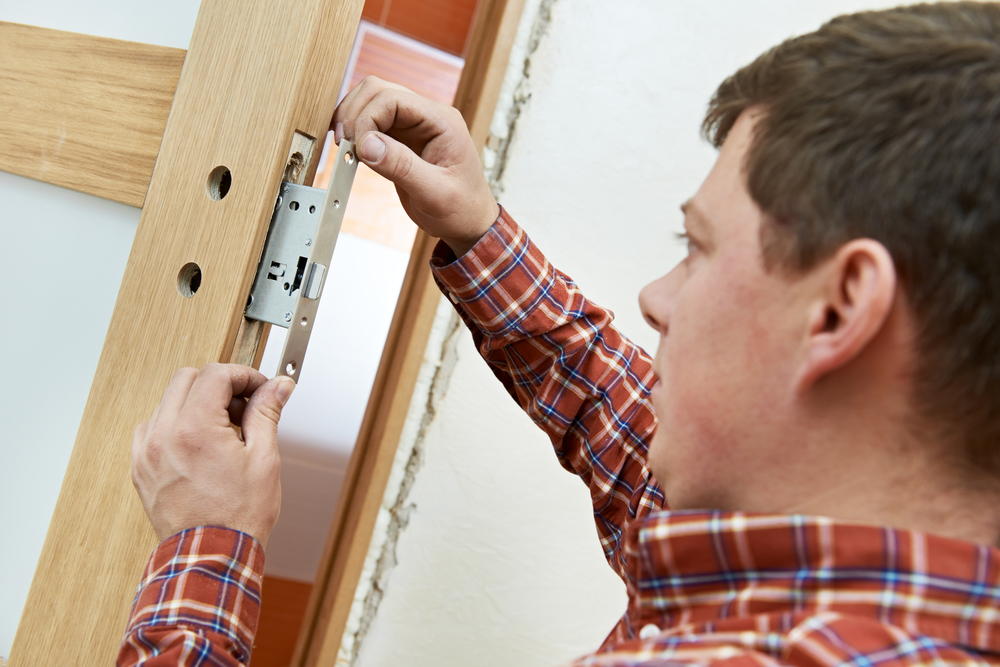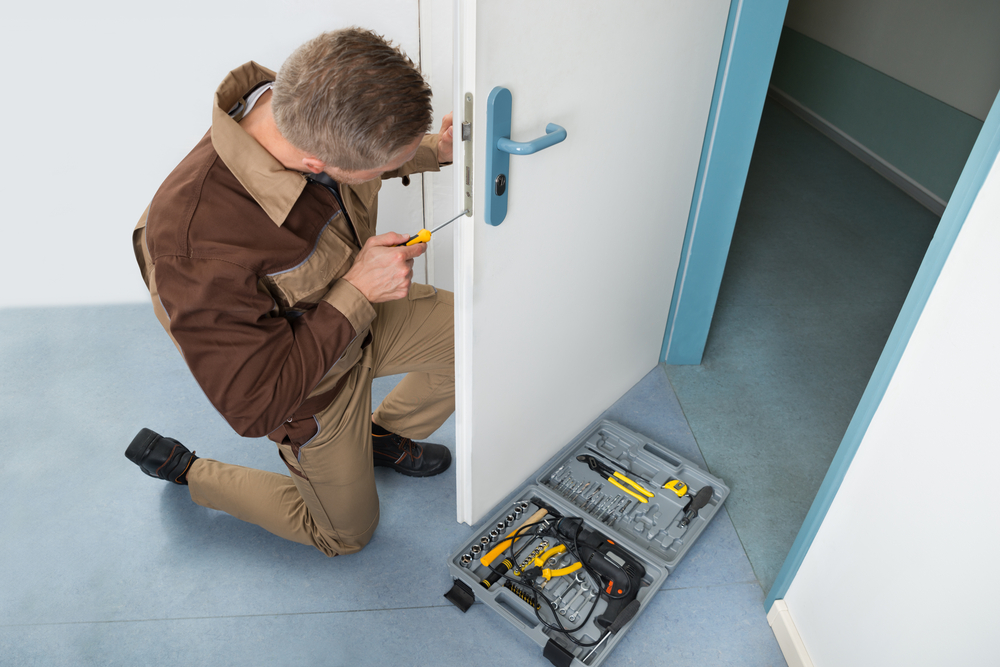Have you ever wondered what the process is like to become a locksmith? And did you know that you must have a licence in order to install, repair, service, and maintain both electronic and mechanical locks? The locksmith industry is heavily regulated and controlled, so the answer to these two questions is an emphatic yes!
It is true that locksmiths needed licenses in order to perform certain functions. However, there is also a process that comes into play when becoming a locksmith.
If you want to learn more about this, then please keep on reading!
What Does A Locksmith Do?
First of all, let’s talk about what a locksmith does. A locksmith is a security professional that uses the latest technology to install various security services and measures in residential, automotive, commercial, industrial, health, government, and educational settings. Some of these technologies include CCTV cameras, alarms, safes, vaults, and of course, the traditional lock and key.
In the past, traditional locksmiths mostly dealt with installing the old fashioned lock and key security measures; however, as technology has continued to progress, locksmiths are trained to become highly skilled with various types of digital advances to meet the growing digital and electronic age today.

How Can You Become A Locksmith?
The first step to becoming a Trade Qualified locksmith is to enter an apprenticeship. In Australia, this is offered by TAFE, which offers nationally-recognised training for apprentices and trainees from different backgrounds.
Apprenticeships begin by working for an employer who is willing to take you in as an apprentice. As an apprentice, you will be paid to accomplish a job and learn new skills. Additionally, you can pursue various jobs and career paths in the process without going to university and receive a qualification that is recognised anywhere in Australia.
You can find employers simply by searching online, checking newspapers, consulting with employment agencies, or writing to local locksmiths in your area.
Once a business has taken you in as an apprentice, you should contact the Australian Apprenticeship Support Network provider as they will supply you with all the pertinent documentation for both you and your employer. You will be officially contracted to your employer for as long as it’s needed for you to gain enough skills in the area.
As an apprentice locksmith, you can learn and be involved in tasks such as evaluating security measures, installing, repairing, adjusting, and maintaining locks and other security devices, creating keys, changing lock combinations, and working on locksets and door hardware in residential, automotive, commercial, and institutional settings.
To receive a trade certificate, you must be able to successfully accomplish the on-the-job training at your employer’s workplace and the off-the-job training with an accredited training provider.
Apprenticeships can last from one to four years, but four years is usually the nominal term. Keep in mind that though the locksmith industry is considered a small occupation, which means there are still limited opportunities to gain an apprenticeship.

When Will A Locksmith Need A Licence?
Different types of locksmith work need licences. In the major Australian states, security licences are required for access control, commercial, and safe locksmith work.
Additionally, in most cases, licences are needed for installations, repairs and maintenance. For example, a Class 2 security provider licence is necessary for the installation, reparation, service, and maintenance of the following:
- Alarms
- Monitoring systems
- Safes
- Vaults
- Audio and/or visual recording systems
- Motion, infrared, microwave, or contact detectors
- Motion sensor lights that do not set off alarms
- Electric, electro-magnetic, or biometric access control devices
On the other hand, a locksmith will not need a license to perform basic services such as key cutting.
Summary
In order to become a locksmith, you must be able to enter an apprenticeship and accomplish both an on-the-job and off-the-job training. Through this, you can obtain a trade certificate and successfully become a locksmith.
However, there are certain types of locksmith work that require licences. This can depend on the type of locksmith work along with licence requirements of the respective state you are located in. However, basic services like key cutting do not usually require a licence to be passed.
If you find yourself needing professional locksmith services, Casey Locksmiths is the preferred choice for all your locking needs in Melbourne.
Please call us today on 0416 161 332 or contact us through our enquiry form.

